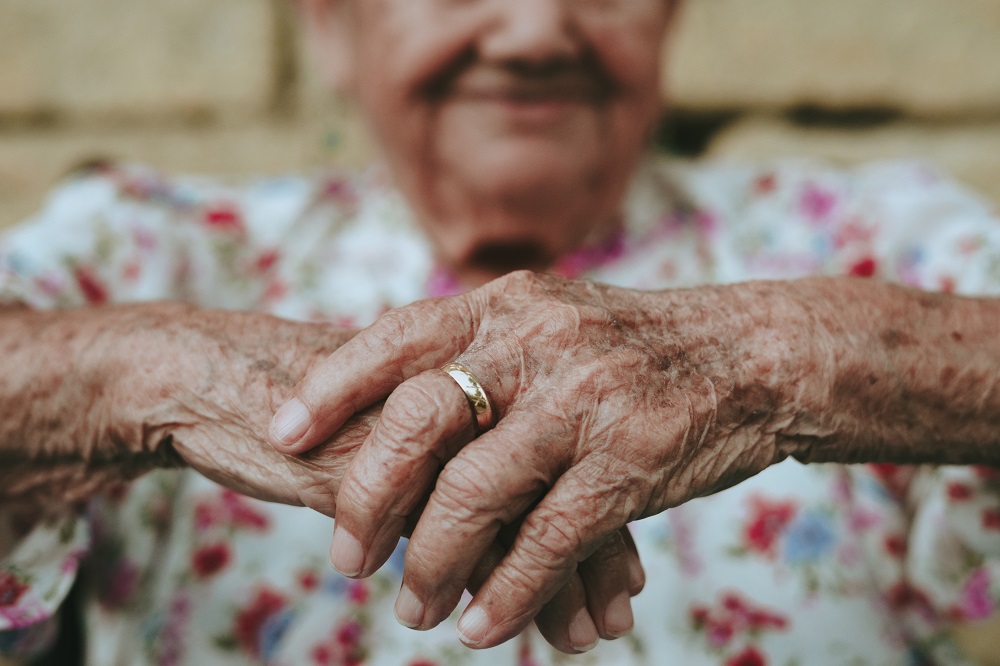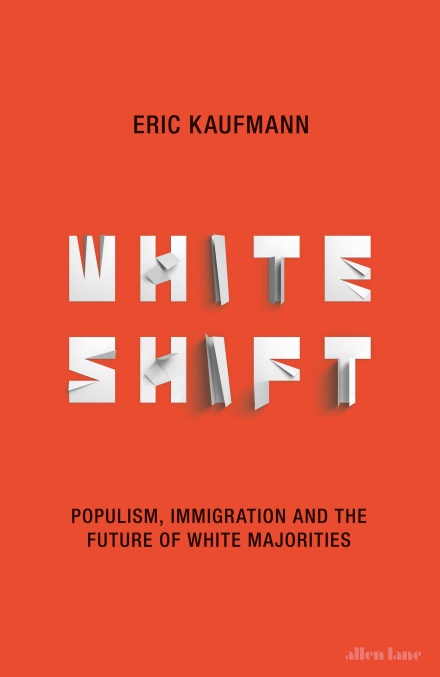The national lockdowns in 2020 affected people in different ways, depending on age, social habits and living situation. In this blog, Dr David Tross, an Associate Lecturer in the Department of Geography discusses the findings of a study of how the first lockdown affected their wellbeing.

Asked to record her feelings about lockdown during the first wave of the COVID -19 pandemic, Alice*, a 71-year-old divorcee living in Cheshire, describes it as ‘the longest and best holiday I have ever had’ while Catherine, a 60-year-old married retiree living in Essex, states: ‘if it wasn’t for this virus, I would consider this my ideal life-style’.
These are a few snippets from 24 written accounts of the first lockdown by older individuals, volunteers responding to a Summer 2020 of the Mass Observation Project, a longstanding social research initiative that generates written commentaries about a range of contemporary social issues from residents across the UK (my older sample are part of a broader age-based panel). While Catherine and Alice were unusual in being quite so enthusiastic about the experience of lockdown, the older age group is of particular interest sociologically because of a paradoxical theme emerging about the impact of the pandemic: despite being more vulnerable to dying or being hospitalised by COVID-19, older people’s wellbeing seemed less affected than that of other age groups. While overall levels of subjective wellbeing in the UK declined (unsurprisingly but still noticeably- given that this was the first national drop in the 10 years of measurement), older people’s self-reported levels of loneliness, anxiety and depression rose at a much lower rate than other age groups. The main losers? Young people, whose self-reported anxiety and depression tripled.
One explanation is about relative change to lifestyle. For my older cohort, it was the lack of fundamental change to their normal routine that characterised the majority of responses. As one put it, ‘’my life just seems to have trundled on regardless’ and her explanation, being retired and ‘not being directly or indirectly affected by the pandemic’ also illustrates a wider point. Provided you or others you knew hadn’t suffered from the virus, three key disruptions in the lives of many UK households: work routine, threats to income and home-schooling children, were not generally a factor for this group. Indeed, when prompted to describe changes in her routine, Catherine writes that ‘for the first time in our lives we now take a multi-vitamin every day’. With all due deference to the restorative powers of Vitamin D, this is not quite the seismic change the pandemic wrought upon many.
Another explanation is about relative expectations. Take loneliness. Despite having larger social networks and more frequent communication with friends and family, younger people self-reported as the loneliest age group in lockdown, surely underlining the discrepancy between the expectations of this age group and the reality (to take one example, students confined to their university halls). However, experiencing less disruption wasn’t always a lockdown advantage. In June 2020, an ONS survey indicated that almost half of UK working-age adults were reporting benefits of lockdown- not commuting, a slower pace of life, spending more time with family- precisely because of the forced but not necessarily unwelcome upheaval in their lives. Although many older respondents did write about enjoying popular activities of lockdown highlighted by the survey- gardening, walking, spending more time in nature, taking up creative hobbies- this was often only a slightly extended version of their pre-pandemic routines.
The boosterish narrative of lockdown was brilliantly satirised by the Financial Times opinion writer Janan Ganesh as ‘Oh! What a lovely curfew’. Decrying the tendency to ‘frame the lockdown as a disguised gift to the species’ as ‘tasteless’, he highlights that what ‘started out as twee high jinks about banana bread’ only reflects the deeper truth that there were winners and losers of lockdown, and socio-economic circumstances were one important dividing line.
Because, as the MO writers were penning their responses, it was already clear that one nation under lockdown had revealed two nations experiencing very different realities. One, living in affluent areas, in decent-size homes with access to gardens, furloughed from jobs or working from home and saving money; another, living in crowded accommodation in less affluent areas, disproportionately non-white, more likely to self-report as depressed and anxious, and, if still employed, having to take their chances with the virus in public-facing roles.
My writers belong mostly to the first tribe. They have gardens, own their homes and generally live in more rural and affluent areas of the UK. This may help to explain their relative lack of proximity to COVID deaths and hospitalisations. If they are lucky, then many acknowledged this. Take three indicative comments: ‘I felt so sorry for families in high-rise flats‘; ‘we have been very busy in our garden, it must be terrible to be in lockdown with nowhere to get out’; lockdown ‘is mostly easy, being retired, well off and a white woman’. These are the voices of privileges being checked.
While statistics tend to flatten the difference within social groups, qualitative research highlights the diversity of experience. Lockdown was a miserable experience for older writers whose culturally and socially gregarious lives were dramatically curtailed (limited space precludes exploring other negative factors, including those with health conditions whose treatment was disrupted). While Alice declared ‘it wouldn’t bother me if I never went to cinemas, restaurants and celebratory events again’, for others for whom these social and cultural engagements really matter, any benefits conferred by lockdown could not compensate for their lack. As one male retiree wrote, ‘I saved money but lost my social contacts’.
One significant loss was volunteering. The older writers broadly align with the demographics of what researchers have termed the ‘civic core’, the segment of the population who do the most volunteering and civic participation (including voting). This core is generally older, female, rural and live in less deprived areas. Over half of the cohort volunteered regularly pre-pandemic (compared to 25% of the UK adult population as a whole), and for some, the combination of service closures and personal vulnerability meant that they could no longer do so. ‘My friend and I who have worked together in Citizens Advice (CAB) and have done for many years, were over 70 and at risk and asked not to come’ writes one 80-year-old; ‘I have volunteered at CAB first as an adviser and latterly doing admin for over 45 years so this was a huge loss’. Another who organised events for other older residents in the village hall has moved some of these online but laments that this is ‘just not the same. I miss my social connections’.
The loss of volunteering opportunities also provides a more nuanced understanding of the unprecedented community response in the first wave of the pandemic. In what has been described as the largest peacetime civilian mobilisation in UK history, an estimated three million people in April and May of 2020 formed the vanguard of neighbourhood covid support groups delivering key medical services, food provision and support to vulnerable people across the UK. The Local Trust calls this as ‘an extraordinary response to the crisis, and evidence of a surge in community spirit’. And yet the spontaneous emergence of informal and locally focused covid mutual support groups ran alongside a sharp drop in formal volunteering, as charities and voluntary associations closed services and furloughed staff, or where older volunteers were too vulnerable to participate. This doesn’t mean that older people weren’t part of the bottom-up community response; some in the cohort took active roles. But it did mean that many older citizens who formed the bedrock of UK Civil Society were now, at the apotheosis of voluntary contribution, left without a contribution to make.
*names have been invented

 Across the West, anti-immigration populists are tearing a path through the usual politics of left and right. Immigration is remaking Europe and North America; over half of American babies are non-white, and by the end of the century, minorities and those of mixed race are projected to form the majority in most Western European countries. The left-right distinction is being overshadowed by a culture war pitting whites who dislike diversity against those who embrace it. Ethnic transformation will continue, but conservative whites are unlikely to exit quietly; their feelings of alienation are already redrawing political lines and convulsing societies across the West.
Across the West, anti-immigration populists are tearing a path through the usual politics of left and right. Immigration is remaking Europe and North America; over half of American babies are non-white, and by the end of the century, minorities and those of mixed race are projected to form the majority in most Western European countries. The left-right distinction is being overshadowed by a culture war pitting whites who dislike diversity against those who embrace it. Ethnic transformation will continue, but conservative whites are unlikely to exit quietly; their feelings of alienation are already redrawing political lines and convulsing societies across the West.